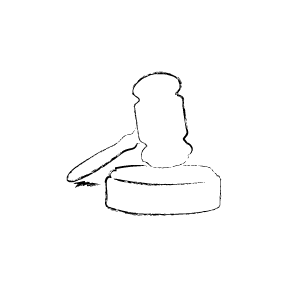Toward meaningful pleadings
Litigation starts with a complaint by the plaintiff, and an answer by the defendant. These two documents are called pleadings
and they are supposed to outline the positions of the parties and give notice of what the fight is about. And sometimes, they actually do.
The most effective plaintiff's counsel is usually quite happy to explain the theory of the case coherently and with the best factual detail available. It tends to make a good first impression on judges and magistrates, and can help the plaintiff demonstrate to the defendant the seriousness of the case. Sometimes, the same is true of defense counsel, which takes the opportunity provided by the answer to explain exactly what aspects of the complaint the defendant disagrees with and why, as well as provide detailed descriptions of defeneses which are going to be asserted.
But not all lawyers see it this way. In particular, some defense lawyers prefer what are sometimes called shotgun
or kitchen sink
answers, which deny virtually everything - true or not, important or not - and list every conceivable defense and then some. These kinds of answers are mostly cut-and-paste jobs, and, if it weren't for the caption, it would be impossible to tell which case the answer pertains to.
What makes this particularly irksome is that the same defense lawyers that file these meaningless answers also tend to file motions to try to dismiss the complaint for not providing enough factual detail - an ironic if not outright hypocritical strategy.
Which presents the question - what kind of standard is used to determine whether the Answer is sufficient? Can the plaintiff hit back against one of these motions, and get the answer knocked out under the same standard applied in the motion to dismiss the complaint?
The district courts have given hundreds if not thousands of opinions on this question, but they do not agree. Specifically, about half the judges have said that the answer is judged by the same standard as the complaint, and about half have said the answer is subject to a more lenient standard.
In my view, the text and policy of the Federal Rules is clear enough, and the same standard should apply to all pleadings, complaint and answer alike. Doing so would end the pernicious "shotgun" pleading practice. After all, if a pleading raises every defense imaginable, including many obviously frivolous ones, and provides no facts supporting any of them, then no one knows which issues to take seriously. The pleading gives no notice whatever of the matters in dispute. And notice is supposed to be the whole point of pleading in the first place.
At the next available opportunity, I hope to be able to present this question to the higher courts to get some resolution of this issue.



Pursuant to MRPC 7.4(a)(2) FREE BACKGROUND INFORMATION AVAILABLE UPON REQUEST
This site is for general information only, and creates no attorney-client relationship. Sending inquiries to the firm does not create an attorney-client relationship. By calling or emailing the firm, you are consenting to receive return calls, emails, mailings and text messages from the firm.
To get legal advice about an employment law, labor law, federal employee law, whistleblower protection, labor unions, worker cooperatives, immigration, discrimination, harassment, wrongful termination, severance, or any related question, you must first have a conflicts check by the firm. We represent exclusively workers, worker cooperatives and unions, but we still must check for potential conflicts of interest, for example, between a supervisor and employee.
First provide the firm with your name, and the name of the person you are making claims against. This allows the firm to check for such conflicts of interest. Until you receive confirmation that there is NO CONFLICT, none of the information you provide will be considered confidential. Do NOT provide any confidential information before we have asked you to do so.
Once we have confirmed there is no conflict, you may discuss your matter with staff in a little more detail, and, if requested, make an appointment. If at your appointment the firm accepts you as a client in writing, then the attorney will be able to provide you with employment law advice.
.
.
.